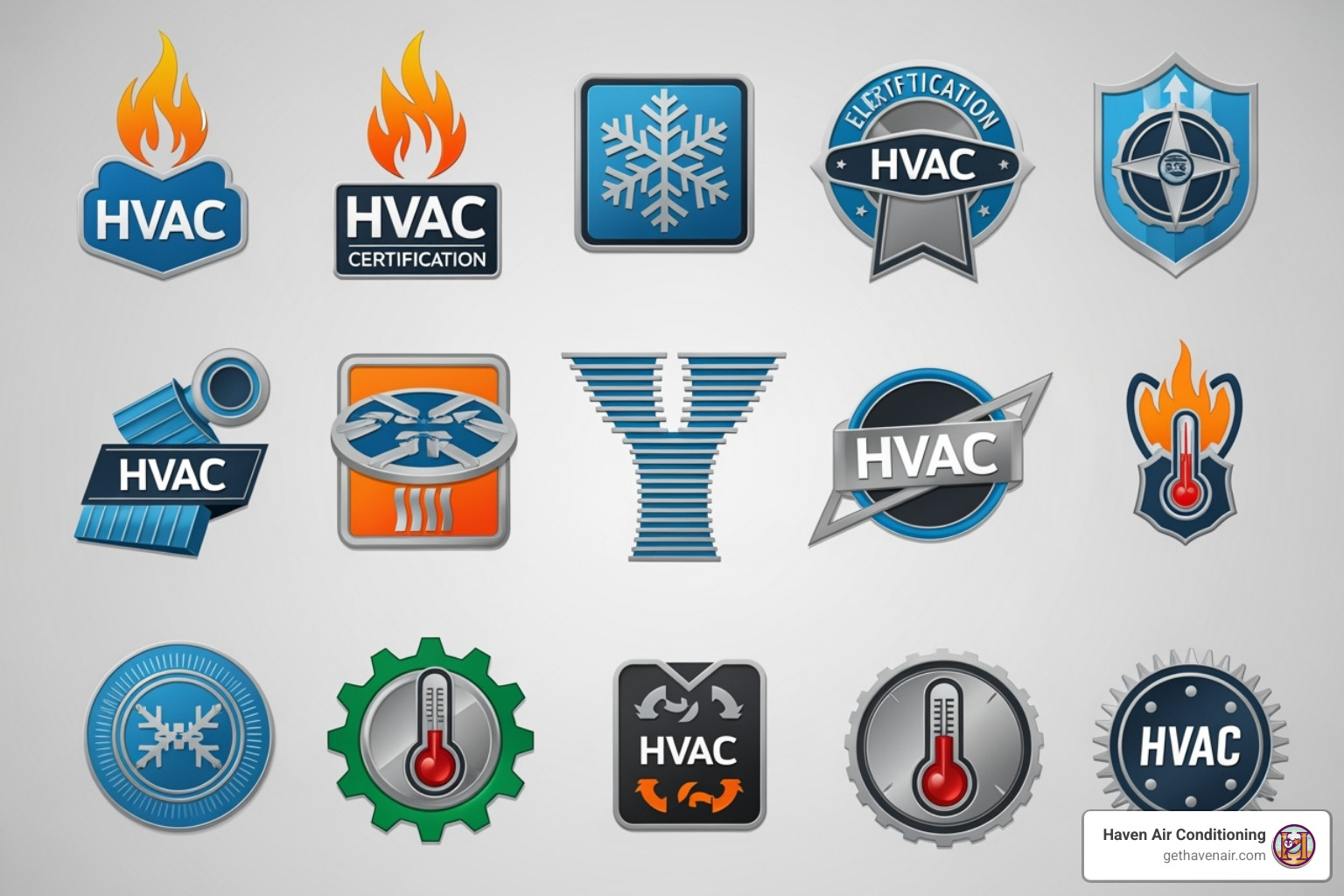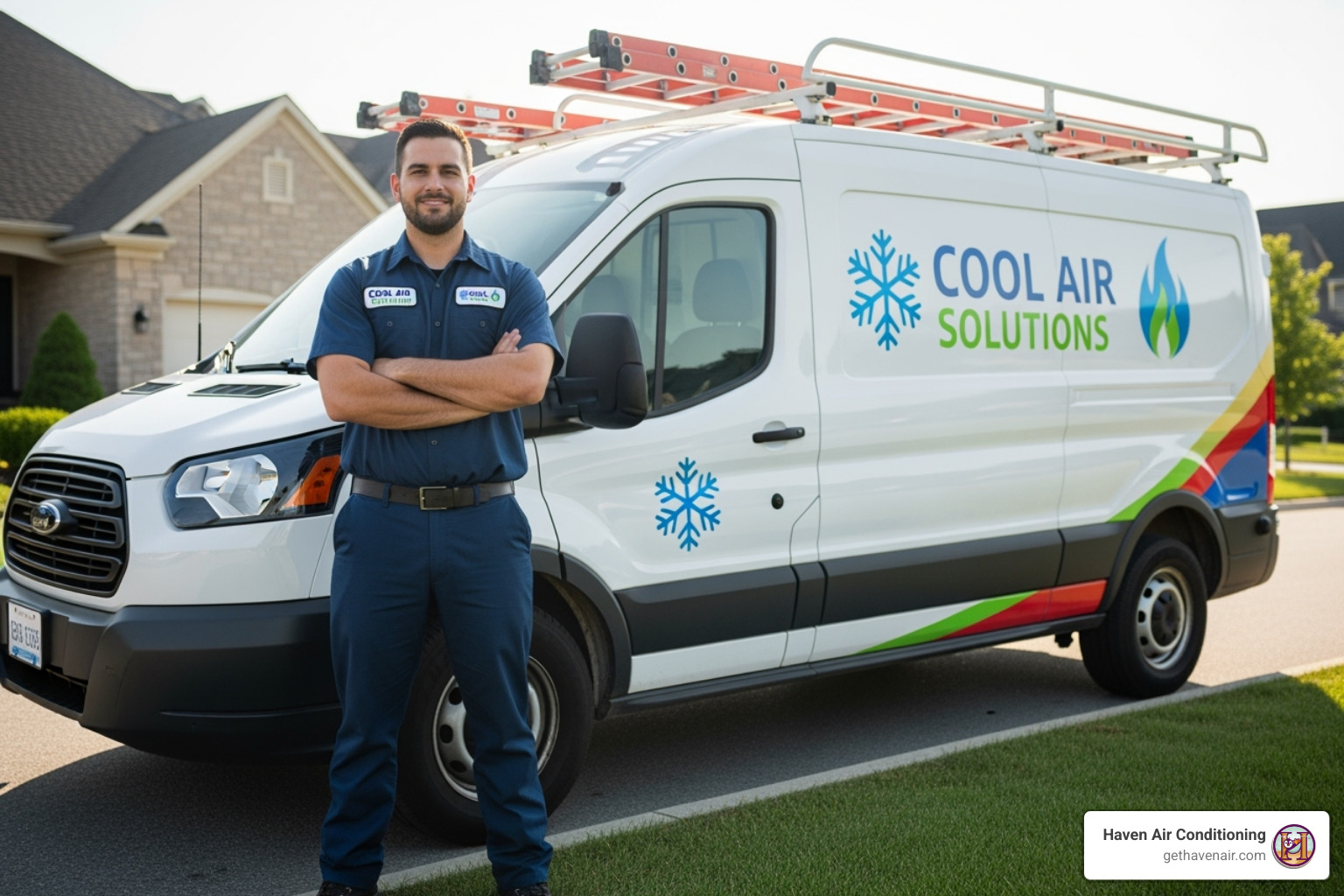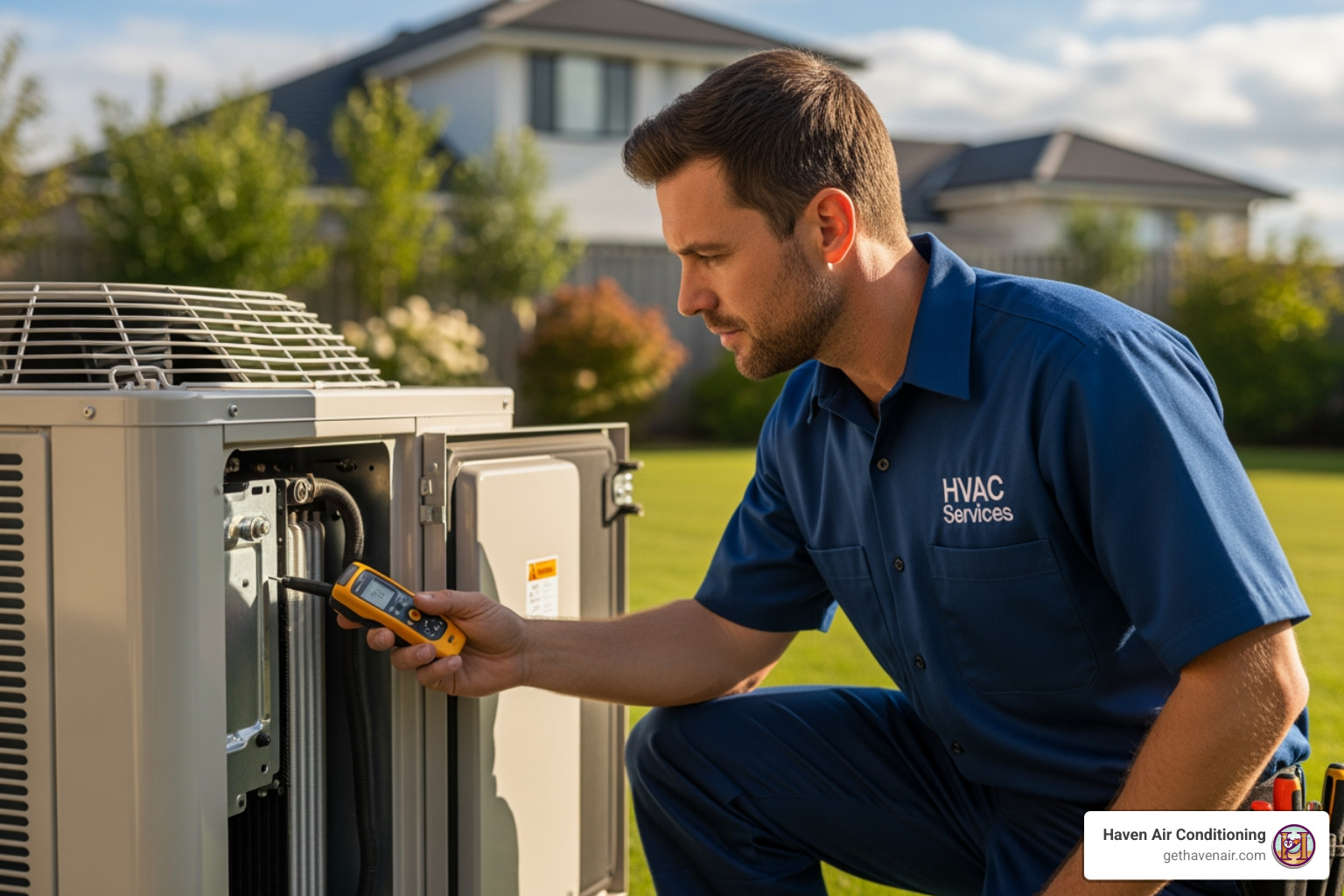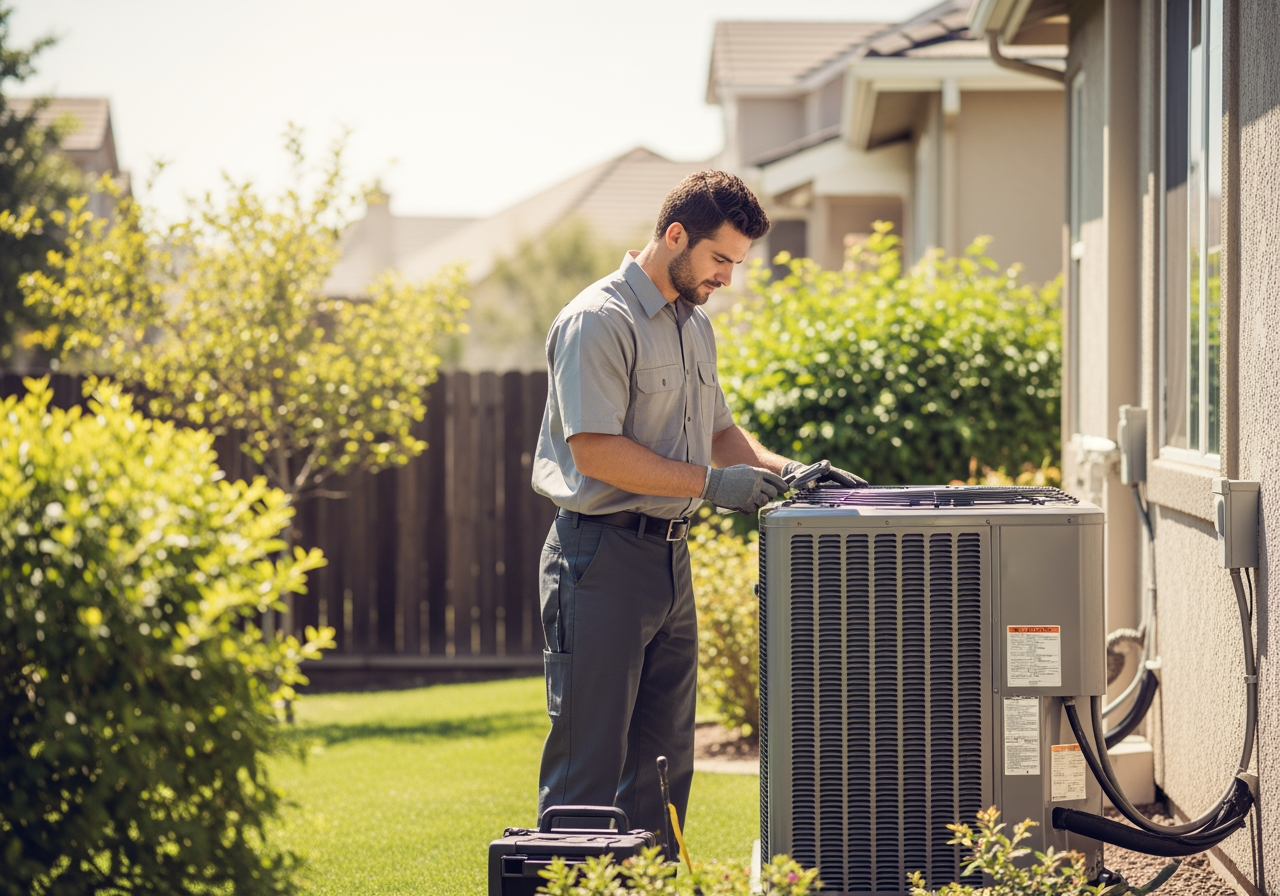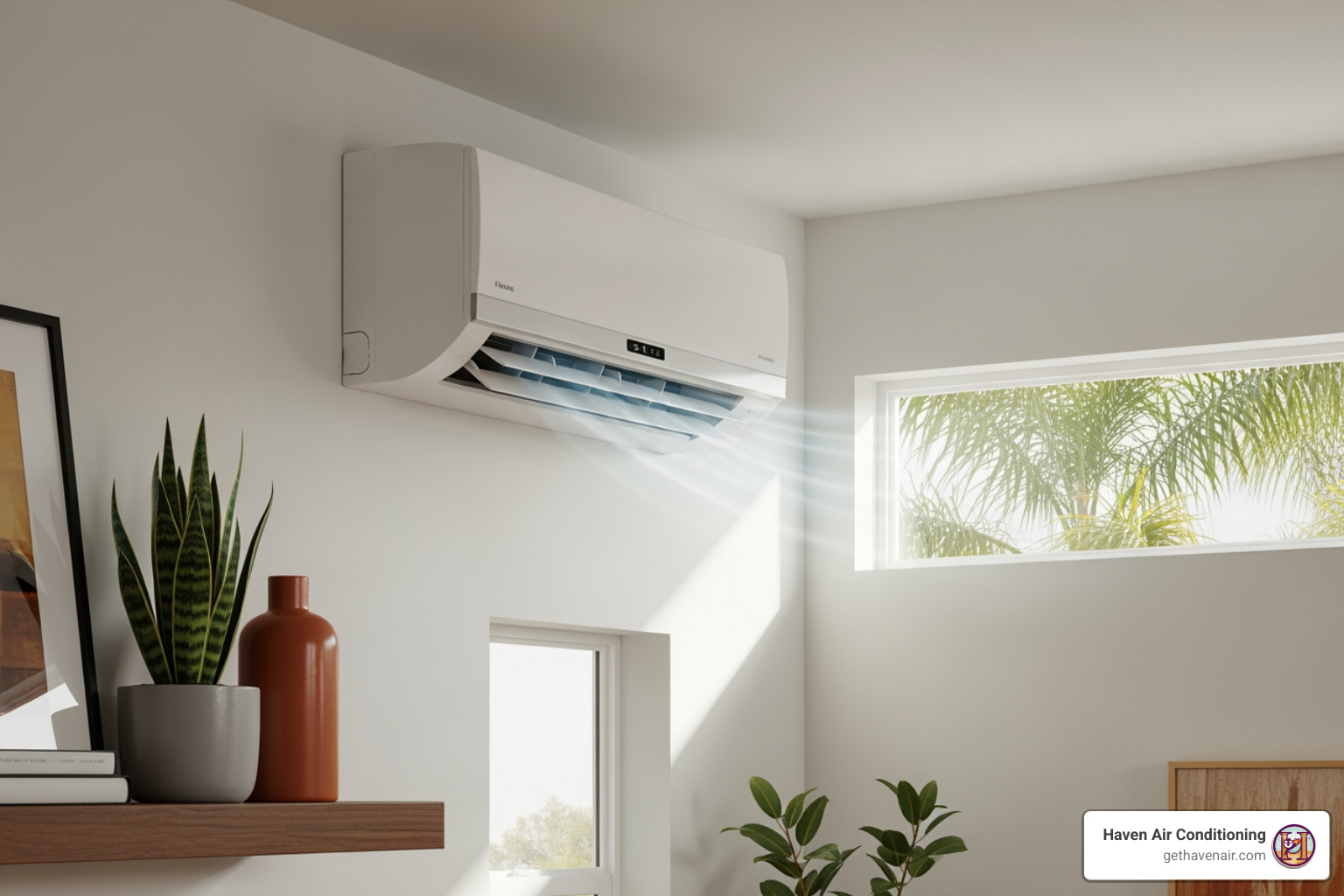Why Certified HVAC Technicians Are Essential for Your Home
Certified HVAC technicians are professionals who have completed specialized training and passed industry-standard exams to prove their expertise in heating, ventilation, and air conditioning systems. The HVAC industry is experiencing significant growth, with the Bureau of Labor Statistics projecting that HVAC technician jobs will grow 5% between 2020 and 2030, creating over 38,500 new positions.
Key requirements for becoming a certified technician include:
- EPA Section 608 Certification – Mandatory for working with refrigerants
- High school diploma or GED
- Formal training – 6 months to 2 years at a vocational school or community college
- Industry certifications – NATE or HVAC Excellence (voluntary but highly valued)
- State licensing – Requirements vary by location
When your air conditioning fails during an Orange County summer, you need an expert. Certified technicians have proven their skills through rigorous testing and ongoing education. They understand the complex refrigeration systems, electrical components, and safety protocols that protect your family and your investment.
This guide breaks down everything you need to know about HVAC certifications, from mandatory EPA requirements to the voluntary credentials that separate true professionals from the rest.
What is HVAC Certification and Why is it Crucial?
When your AC fails during an Orange County summer, you need a technician you can trust. That’s what HVAC certification provides: confidence that the professional in your home has the proven expertise to get your system running again safely and effectively.
HVAC certification is a credential earned by a professional to prove they have mastered the knowledge and skills needed to work on heating, ventilation, and air conditioning systems. These certifications represent hours of rigorous training and testing on everything from industry standards to complex system diagnostics. A certified technician understands the intricate relationship between electrical components, refrigerants, and mechanical systems that keep your home comfortable.
For homeowners, the benefits are clear:
- Consumer Confidence: Certified technicians have proven they know their craft. You’re not gambling on their ability to diagnose and fix the problem correctly.
- Safety Compliance: HVAC work involves electricity, refrigerants, and sometimes natural gas. Certified technicians are trained in proper safety protocols to protect your family and property.
- Quality Assurance: Technicians who invest in certification take pride in their work. This translates into better service, more accurate diagnoses, and repairs that last.
At Haven Air Conditioning, our entire team consists of certified HVAC technicians. It’s how we provide our Orange County customers with the peace of mind they deserve. You can learn more in our guide on Why Hire Certified HVAC Technicians.
Certification vs. Licensing: Understanding the Key Difference
Homeowners often use “certified” and “licensed” interchangeably, but they are quite different. Both are important, but they serve distinct purposes.
Certification proves knowledge and skill. It’s awarded by private organizations or educational institutions after a technician passes comprehensive exams. For example, EPA certification proves they can handle refrigerants safely, while NATE certification shows mastery of specific HVAC specialties. Certification answers the question: “Can this person do the job well?”
Licensing, on the other hand, is legal permission from a government entity (state, county, or city) to perform HVAC work in that jurisdiction. It’s the official approval that says a technician is legally allowed to work on your system. Licensing requirements and state-level variations are significant; what’s required in California differs from other states.
The bottom line is that certification proves expertise, while licensing grants legal permission to work. The best technicians have both. In many areas, certain certifications (like EPA Section 608) are a prerequisite for obtaining a license, ensuring a baseline of competence for all legally operating technicians.
For a deeper dive, check out this resource on Understanding Certifications for HVAC Technicians.
The Main Types of HVAC Certifications
HVAC certifications fall into two main categories: mandatory credentials required by law and voluntary certifications that demonstrate a higher level of expertise. Understanding these types helps you appreciate the qualifications our certified HVAC technicians bring to every job.
Mandatory EPA Section 608 Certification
The EPA Section 608 certification is required by federal law for any technician who handles refrigerants. Since nearly all HVAC systems use refrigerants, this certification is essential for almost everyone in the field. The EPA established this credential to ensure technicians can safely handle, recover, and dispose of these chemicals to protect the ozone layer. You can learn more at the official section 608 certification page.
The certification is broken into types:
- Type I: For small appliances with 5 pounds or less of refrigerant (e.g., refrigerators, window AC units).
- Type II: For high-pressure systems, including most residential air conditioners and heat pumps.
- Type III: For low-pressure systems, such as large commercial chillers.
Many technicians, including those at Haven Air Conditioning, obtain Universal certification, which covers all three types and allows them to work on any refrigerant-containing equipment.
Voluntary Industry-Recognized Certifications
While not legally required, voluntary certifications separate good technicians from great ones. They show a commitment to mastering the trade.
NATE (North American Technician Excellence) is the most respected certification in the HVAC industry. NATE-certified technicians have passed rigorous, real-world exams that test their practical knowledge in specialties like air conditioning, heat pumps, and gas heating. To earn certification, a technician must pass both a core exam and at least one specialty exam.
HVAC Excellence is another leading certification body. They offer professional-level certifications in specific areas like electrical systems and air conditioning, as well as master specialist certifications for technicians who demonstrate the highest level of expertise.
For homeowners, these voluntary certifications are a sign of quality. They indicate you’re hiring a professional who has gone beyond the minimum requirements to prove their skills. At Haven Air Conditioning, we value these credentials because they align with our commitment to exceptional service. Learn more about why this matters at What You Need to Know about HVAC certification.
Your Roadmap to Becoming a Certified HVAC Technician
Becoming a certified HVAC technician is a journey toward a secure and rewarding career. The path requires dedication, but it’s straightforward and involves building a strong foundation of knowledge and hands-on experience.
Educational Pathways and Training
The journey begins with the right education. While on-the-job training is an option, formal training provides a significant advantage by teaching the “why” behind the work, not just the “how.”
- High School Diploma/GED: This is the essential starting point. Coursework in math, physics, and chemistry is highly beneficial.
- Vocational Schools & Community Colleges: These institutions offer specialized HVAC programs. Certificate programs take 6-24 months and focus on job-ready skills. Associate’s degree programs take about two years and provide a more in-depth education, often leading to supervisory roles.
- Apprenticeships: This popular route combines paid, on-the-job training with classroom instruction. Lasting 3-5 years, apprenticeships allow you to learn from seasoned certified HVAC technicians while earning a wage. Many of the best technicians start their careers this way.
For a detailed look at these options, see this guide on How to Become an HVAC Technician.
The Process, Timeline, and Costs
Becoming a certified HVAC technician is a relatively quick and affordable path compared to many other professions.
Timeline: A certificate program can have you working in the field in 6-24 months. An apprenticeship takes 3-5 years, but you earn while you learn. The mandatory EPA Section 608 exam can typically be taken upon completion of a training program.
Costs: The investment is manageable. Certificate programs can range from $3,000 to $15,000, while apprenticeships are often the most budget-friendly as employers may cover tuition. Other necessary expenses include a basic tool kit, safety gear, and exam fees. EPA exam fees are minimal, while voluntary certifications like NATE can cost a few hundred dollars.
Here’s a summary of potential costs:
- Training program tuition
- Personal tool kit and safety gear
- EPA Section 608 certification exam fees
- Optional industry certifications (NATE, HVAC Excellence)
- State licensing fees (if applicable)
- Books and study materials
Many schools offer financial aid, and some employers provide tuition assistance, making this a career path with an excellent return on investment.
Career and Salary Benefits for Certified HVAC Technicians
Choosing to become a certified HVAC technician opens doors to a career that offers both stability and genuine growth potential. It’s one of those fields where your skills are always in demand, and the harder you work, the more opportunities come your way.
Think about it – people will always need heating and cooling systems. Whether it’s a scorching summer day in Orange County or a chilly winter morning, HVAC systems keep our homes and businesses comfortable. That constant need translates into job security that many other industries simply can’t match.
Job Outlook and Career Advancement
The numbers tell an encouraging story. The BLS projects 5% job growth for HVAC technicians between 2020 and 2030, which means more than 38,500 new jobs nationwide. This growth happens for several solid reasons.
First, HVAC systems are becoming more sophisticated. Today’s high-efficiency units and smart thermostats require technicians who really know their stuff. Second, there’s a huge push toward energy efficiency, which means upgrading older systems and installing new technology. Sometimes this involves a complete HVAC System Upgrade, which requires experienced professionals.
Career advancement in this field can take many exciting directions. You might start as a general technician, then specialize in residential service, commercial systems, or even cutting-edge areas like geothermal systems or smart home integration. Many of our most successful technicians have moved into supervisory roles, become instructors at trade schools, or even started their own contracting businesses.
The beauty of this career path is that your skills are portable and valuable. Whether you want to work for a company like Haven Air Conditioning or eventually become your own boss, the foundation of solid certification and experience opens countless doors.
Maximizing Your Earning Potential
Let’s talk about what really matters – your paycheck. The median annual salary for HVAC technicians hit $50,590 as of May 2020, according to the Bureau of Labor Statistics. But here’s where it gets interesting – that’s just the middle of the road.
The top 10% of HVAC technicians earned more than $80,820 per year, and in high-demand areas like California, experienced professionals often break the $100,000 barrier. The key difference? Certification and experience.
Certified HVAC technicians consistently earn more than their uncertified counterparts. Employers know that certified professionals bring proven skills, require less training, and deliver better results. This means fewer callbacks, happier customers, and ultimately, higher value to the company.
Geographic location plays a huge role too. Areas with extreme weather, high costs of living, or strong union presence typically offer higher wages. But even in more moderate markets, skilled technicians with the right certifications command respect and competitive salaries.
Here’s how experience and certification typically impact your earning potential:
| Technician Level | Median Annual Salary (Approx.) |
|---|---|
| Entry-Level / Uncertified | $43,000 – $48,000 |
| Experienced / Certified | $50,000 – $60,000 |
| Highly Experienced / Master Certified | $70,000 – $80,000+ |
The path from entry-level to master technician isn’t just about time – it’s about continuous learning, earning additional certifications, and building a reputation for excellence. Those who invest in their skills and stay current with technology find themselves in high demand, with the earning potential to match.
Frequently Asked Questions about HVAC Certifications
Here are answers to some of the most common questions we receive about what it takes to become a certified HVAC technician.
How long does it take to get an HVAC certification?
The timeline varies depending on the educational path:
- EPA Certification: This can be achieved after a few weeks of focused study, with the exam itself being quite short.
- Certificate Programs: These typically take 6 to 24 months to complete and provide the foundational knowledge for an entry-level position.
- Apprenticeships: This is the most comprehensive route, lasting 3 to 5 years, and combines paid on-the-job training with classroom learning.
A technician can start working with basic credentials and earn more advanced certifications over time.
Are HVAC certifications required in every state?
This is a key distinction:
- EPA Section 608 Certification: This is a federal requirement across all 50 states for anyone who handles refrigerants. It is non-negotiable.
- State Licensing: This varies significantly. Some states, like California, have strict licensing requirements, while others have none at the state level, leaving it to local jurisdictions. You can Refer to this state-wise guide to see the rules in your area.
- Voluntary Certifications (NATE, HVAC Excellence): These are never legally required but are highly valued by employers as proof of advanced skill and professionalism.
What skills are covered in HVAC certification programs?
Comprehensive HVAC certification programs develop well-rounded professionals by covering a wide range of essential skills:
- Safety Protocols: Proper handling of electricity, refrigerants, and gas lines, along with the use of personal protective equipment.
- Electrical Systems: Reading schematics, using diagnostic tools like multimeters, and understanding circuits.
- Refrigeration Cycle: In-depth knowledge of how compressors, condensers, and other components work together.
- System Diagnostics: Systematically troubleshooting issues by analyzing pressure readings, airflow, and other indicators.
- Installation Techniques: Correctly sizing and installing systems, ductwork, piping, and venting according to manufacturer and code requirements.
- Customer Service: Communicating effectively with homeowners, explaining complex issues clearly, and building trust.
These skills prepare technicians for the real-world challenges of the job. You can see them in action when you read about HVAC Repair Techniques by Our Professionals.
Trust the Experts for Your HVAC Needs
After diving deep into HVAC certifications, one thing becomes crystal clear: the difference between a certified professional and someone who just “knows HVAC” is night and day. At Haven Air Conditioning, we’ve built our entire reputation on having certified HVAC technicians who don’t just meet industry standards – they exceed them every single day.
Think about it this way: when your air conditioning decides to take a vacation during Orange County’s hottest week of the year, you want someone who can diagnose the problem quickly and fix it right the first time. That’s exactly what certification guarantees you. Our certified professionals bring proven expertise to your doorstep, whether it’s understanding the intricacies of refrigerant cycles, navigating complex electrical systems, or ensuring every safety protocol is followed to the letter.
The peace of mind factor is huge. When you see our certified technician arrive at your home, you know they’ve passed rigorous exams, completed extensive training, and demonstrated their skills through official channels. This isn’t just about having the right tools – it’s about having the right knowledge to use them effectively and safely.
But here’s what really matters to you as a homeowner: certified technicians deliver better results. Your system runs more efficiently, which means lower energy bills. Repairs are done correctly, which means fewer callbacks and headaches. And installations are performed to exact specifications, which means your new system will serve you reliably for years to come.
Our team serves the entire Greater Orange County Area, from Anaheim to Villa Park, Santa Ana to Irvine, and everywhere in between. We understand the unique climate challenges of Southern California and how they affect your home’s comfort systems. More importantly, we have the certifications and expertise to handle whatever Mother Nature throws our way.
Whether you need routine maintenance to keep your system purring, emergency repairs when things go sideways, or a complete system upgrade, our certified HVAC technicians are ready to help. We combine official credentials with genuine care for our customers – because at the end of the day, your comfort is our business.
For expert service you can trust, especially when you need Expert AC service in Anaheim, certification isn’t just a piece of paper – it’s your guarantee of quality, safety, and peace of mind.



